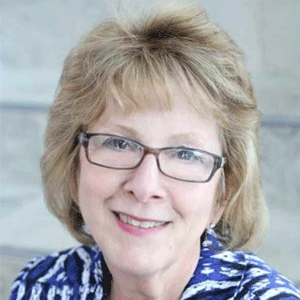With Barbara Haas-Givler
By Jayne Dixon-Weber
Barbara Haas-Givler, from the Geisinger Fragile X clinic in Pennsylvania, gave a talk at the 18th NFXF International Fragile X Conference about executive functioning — what it is, how to identify it, and strategies for improving it. While the title says it is for girls, there are ideas in this video that everyone can use — boys and girls, young and old, even moms, dads, and other caregivers. Throughout her talk, Ms. Haas-Givler intersperses examples of how she handles executive functioning in her own life (also see her presentation slides).
We’d like to share her presentation with you, as well as my key takeaways (below the video) that might help you before you dive in.
Related Materials: Presentation Slides
Presenter: Barbara Haas Givler
Moderator: Jayne Dixon-Weber
Runtime: 1:04:16
I encourage each of you to experiment with ideas and find works in your family, knowing that what works one day may not work the next. Or, what works for you may or may not work for your children/young adults. Oh great, you say.
Jayne’s Top 10 Takeaways:
- Experiment with different ideas. A lot of ideas are presented, so you may have to experiment to see what works best for your child (or you).
- Addressing the underlying anxiety is important. It may manifest itself in different ways. It may be behind the “inability” to get started on a project.
- Look at how you manage your day. Look at all the different activities and see if they can be adapted for your child, knowing that they may feel a lot like you do.
- Use a visual schedule. It is important to keep in mind that you never really outgrow the need for a visual schedule. It might be pictures, it might be words. Look at what you do in your day and adapt it, and you may start one way and switch to another.
- Have a to-do list. Whether you create a list and mark it off or write down items as you complete them, know that everyone has their own way of doing things.
- See what works for the individual. Do you get the hard things done first? Or do you do the easy things or things you want to do first? Maybe you alternate. Just because you do it one way does not mean it is the right way for them.
- Experiment with what works best. When it comes to organization, everyone has different needs and different ways to organize.
- Put a “box” around what needs to be done. This is so everyone knows when it is done, even if the task is not completely finished. Knowing what needs to be done in order to complete a task and knowing when a task is done is important and satisfying for all of us.
- Transitioning between tasks can be challenging. Especially if you’re moving from a preferred task to a not-so-preferred task. You might even need to look ahead at what is after the non-preferred task.
- Take time to celebrate. Whether it was a successful day or week — go get some ice cream! (Andy’s Frozen Custard anyone?)
This video provides lots of aspects to think about and places to start. While it is a task, you should have fun with it!
about

Jayne Dixon Weber
Jayne served as the NFXF director of community education (and other positions over the years) from 2007 to 2023. She has two adult children, a son with Fragile X syndrome and a daughter. Jayne is the author of Transitioning ‘Special’ Children into Elementary School, co-author of Fragile X Fred, and editor of Children with Fragile X Syndrome: A Parents’ Guide. Jayne likes to read, enjoys photography, and goes for a walk every day.
about

Barbara Haas-Givler, MEd, BCBA
Director, Education and Behavioral Outreach, Geisinger Fragile X Clinic
Barbara Haas-Givler is a board-certified behavior analyst in Lewisburg, PA. Ms. Haas-Givler has extensive experience in special education, serving in many different capacities over the course of her career, including classroom teacher, administrator, educational consultant, behavior analyst, and research associate for clinical pharmaceutical trials.
Ms. Haas-Givler has been a long-time member of the Fragile X community. Her dedication to providing families living with Fragile X strategies for success has made a huge impact over the years. She is also a member of the NFXF Clinical Trials Committee.

